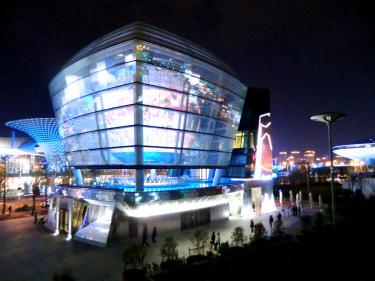The organizer of the 2015 World Exposition in Milan is reportedly only willing to place the Taiwan Pavilion in the “corporate area” rather than in the “country area,” a matter on which the Ministry of Foreign Affairs yesterday declined to comment, citing insufficient information.
Following its participation in the World Exposition held in Japan’s Osaka in 1970, Taiwan, due to interference by China, has not participated in any of the subsequent world expos until Expo 2010 in China’s Shanghai. The Bureau of Shanghai World Expo Coordination sent an official invitation to the Taipei World Trade Center organization for a Taiwan Pavilion at the expo in May 2009.
However, even then the Chinese government had been making small moves that cast doubt on Taiwan’s sovereign status: first by listing Taiwan in the China Exhibition Hall area on the official Web site, then placing it beside the Hong Kong and Macau halls.
Though both incidents had been rectified after Taiwan protested, the shadow of China’s oppression and continual challenges to Taiwan’s sovereign status lingered.
The Chinese-language China Times yesterday reported that an Italian delegation, during a visit with President Ma Ying-jeou (馬英九) in Taipei last month, gave the assurance that they would contact the International Expositions Bureau and attempt to elevate Taiwan’s participation status at the global event.
According to the English-language Web site of the 2015 World Exposition, the expo, being a universal event, would be divided into four different categories, namely countries, international organizations, businesses and civil society organizations.
The site also said that invitations to the world exposition had been extended to “United Nations member countries” — Taiwan has not been a UN member since 1971 — adding that 130 countries had thus far responded to the invitations.
Commenting on the matter, Democratic Progressive Party (DPP) Legislator Lee Chun-yi (李俊俋) yesterday said that “over the past five years, President Ma Ying-jeou’s administration has again and again given tacit consent to the ‘one China’ principle, and Taiwan’s participation in international communities such as the World Health Assembly and the International Civil Aviation Organization has been based on such consent.”
“This consent has caused the international community to mistakenly perceive Taiwan as a part of China,” Lee said, adding that the Ma administration is now getting a spoonful of its own medicine.
“The ministry’s inaction against Chinese oppression and now its inability to gather information on an international event, clearly showed a dereliction of duty to the people they serve,” DPP Legislator Tsai Chi-chang (蔡其昌) said.
DPP Legislator Huang Wei-cher (黃偉哲) said that China must be behind Italy’s denial of Taiwan’s participation in the 2015 world expo as a country, adding that “if the Ma administration’s claims that cross-strait relations have never been better were true, then there should be something to show for it.”
“The government needs to actively negotiate with Italy on the issue and if we cannot affirm the sovereign status of Taiwan at the exposition, then we would rather not participate,” he added.
Source: Taipei Times - 2013/12/08





















